Internal audit: meaning, functions, examples

Do you wish to keep your business competitive? Are you trying to identify errors beforehand or avoid them altogether? Are you curious to know whether you're meeting your goals or completely veering off course?
In an ever-changing economic landscape, the role of Internal Audit emerges as an indispensable guarantor to ensure the stability and honesty of organizations. The Internal Audit, or internal audit, is not merely a compliance activity but rather a strategic engine that fuels sustainable business growth.
Internal Audit professionals stand as guardians of corporate integrity, guided by in-depth analyses and rigorous assessments to ensure that operational practices align with strategic objectives.
How can Internal Audit become a catalyst not only for regulatory compliance but also to stimulate innovation and optimize business processes?
Let's explore together, discovering how this proactive approach not only mitigates risks but shapes a resilient organizational environment focused on performance.
What is Internal Audit?
Internal Audit, or internal audit, represents a process aimed at evaluating and improving the effectiveness of a company's internal controls. This strategic function examines and critically evaluates an organization's operational, financial, and compliance activities to identify potential risks, improve process efficiency, and ensure regulatory compliance.
The literal translation of Internal Audit is "internal review" or "internal inspection."
So, what do we mean when we use the term "Internal Audit"? The key element is to provide an objective and independent analysis of business operations, thereby ensuring transparency, preventing fraud and irregularities, and promoting best practices. Internal audits are conducted by internal staff or external consultants who periodically conduct detailed reviews of processes, accounting systems, and internal controls.
Why is it so important? The aim is to provide an accurate and unbiased assessment of business activities, enabling executives to make informed decisions and reduce operational risks.
In short, Internal Audit is a crucial element to ensure good corporate governance and its long-term sustainability.
What does it serve within a company?
We've already understood that Internal Audit plays a crucial role in a company, particularly in larger organizations. Being geared towards numerous vital purposes, it significantly contributes to the success and durability of the business organization.
In particular, Internal Audit is important for:
- Risk management evaluation: one of the main objectives of Internal Audit is to assess and monitor risk within the company. This function identifies potential threats like financial, operational, or compliance risks, allowing the company to take preventive measures to protect its interests.
- Improvement of business processes: it evaluates the company's operational and administrative processes to identify inefficiencies, waste, and improvement opportunities, contributing to optimizing operational efficiency and reducing costs, thereby increasing the company's competitiveness.
- Regulatory compliance: Compliance with laws and regulations is crucial to avoid legal and reputational sanctions. Internal Audit verifies that the company complies with current regulations and provides an independent review to identify any non-compliance.
- Quality assurance: It checks the quality of the company's business processes, services, and products, maintaining high-quality standards and ensuring customer satisfaction.
- Support for leadership: By providing evidence-based information and in-depth analysis, Internal Audit helps business leadership make informed decisions. This is particularly important in a constantly evolving business environment where quick and data-driven decisions are fundamental.
So, what is the goal of Internal Audit? In summary, Internal Audit provides leadership with a clear and reliable overview of business operations, aiding in making accurate strategic decisions.
What does an Internal Audit involve?
How does Internal Audit achieve the objectives we've just seen? It is based on a set of criteria that internal auditors must use to assess business processes and procedures.
The central aspects of Internal Audit include:
- Effectiveness: Examining how satisfactory business processes are in achieving established goals.
- Efficiency: Verifying the effectiveness of business processes to identify areas that require improvement.
- Compliance: Checking the consistency of business processes with the rules and practices established by the company.
- Reliability: Ensuring the credibility of business processes by ensuring the accuracy and integrity of generated information.
- Protection: Safeguarding the company's assets from potential fraud, corruption, and losses.
Clearly, the standards of Internal Audit can vary depending on the organization and industry in which it operates. For example, internal auditors at a bank will need to pay particular attention to reliability and protection criteria, while those in a manufacturing company will need to focus more on efficiency and compliance criteria.
Moreover, it can involve internal or external figures. Let's immediately see what changes in one case compared to the other.
Differences between internal and external audits
What changes if the audit is internal or external? In reality, these two forms of control differ in terms of objectives, management, audience, and focus of review activities.
Let's overview the main differences based on the intervention scope.
Regarding the purpose:
- Internal Audit: The main objective is to evaluate and improve the effectiveness of business processes, identify operational risks, ensure compliance with internal policies, and promote the overall efficiency of the organization.
- External Audit: The objective is to provide an independent and objective assessment of the company's financial information to ensure its accuracy and compliance with accounting standards.
Regarding management:
- Internal Audit: It is managed internally, often by an internal audit department. Internal auditors may be employees of the company or external consultants, but they work closely with the company's management.
- External Audit: It is managed by an external accounting audit firm. External auditors are independent of the organization and provide an impartial opinion on financial information.
Target audience:
- Internal Audit: It is primarily aimed at management members, the board of directors, and all business functions involved in audited activities.
- External Audit: It is aimed at investors, regulatory authorities, creditors, and other external parties interested in the reliability of financial information.
Frequency of checks:
- Internal Audit: Often conducted periodically, depending on the company's needs and priorities.
- External Audit: Conducted annually, at the end of the financial year, but may also include quarterly or special reviews.
Focus of operations:
- Internal Audit: Focuses on operational aspects, risk management, and compliance.
- External Audit: Focuses on reviewing financial information, including auditing financial statements and compliance with accounting standards.
The two methods can thus be used differently, although Internal Audit is often more precise and useful at the company level.
Types of Internal Audit
However, the differences do not end here, as there are many different types of Internal Audit. Each is designed to take different approaches and focus on specific areas within an organization.
To find the one that best suits your needs, you need to know the main types:
- Financial: Focuses on auditing and verifying the company's financial information to ensure that financial reports are accurate and compliant with accounting standards.
- Operational: Evaluates the effectiveness of the organization's operational processes, improving performance and operational efficiency.
- Compliance: Ensures that the company complies with laws, regulations, and internal policies, ensuring organizational adherence to regulations and legal provisions.
- Information systems: Examines the controls and security of information systems and company data, focusing on information technology and data protection.
- Human resources: Evaluates policies, procedures, and practices related to human resources, covering personnel management, training, regulatory compliance, and organizational culture.
- Environmental and sustainability: Examines the environmental impact of business activities and compliance with environmental regulations.
- Supply chain: Evaluates the effectiveness and security of the company's supply chain, paying particular attention to relationships with suppliers.
- Risk: Helps identify, assess, and mitigate risks that can affect business objectives.
- Ethical compliance: Checks the organization's compliance with ethical norms and corporate values.
- Integrated: Combines various aspects of internal audits, often incorporating financial, operational, and compliance elements, providing a comprehensive analysis of the entire organization.
Organizations can use a combination of different types of audits to get a complete view of their operations.
Phases of an internal audit
Internal Audit, the backbone of corporate management, is a systematic process that goes through various phases, each of which plays a fundamental role in ensuring the solidity and transparency of business operations.
If not for this systematic approach, it wouldn't be able to achieve all the objectives we've just covered!
At this point in our journey, it's time to analyze the entire process through which Internal Audit works.
1. Planning
The initial phase of Internal Audit is dedicated to detailed planning. Here, audit objectives are clearly defined, outlining priority areas for examination.
Staff assignment, identification of necessary resources, and the drafting of a specific audit plan are integral parts of this phase.
Accurate planning provides the solid foundation necessary for an effective internal review.
2. Information gathering
The next phase involves gathering a wide array of information based on the area the expert will intervene in.
From company policies to financial documents, every relevant detail is scrutinized to create a complete picture of business activities.
This phase is like creating a mosaic, with each element contributing to painting a clear and detailed picture of the company's health.
3. Risk assessment
Navigating business waters requires a thorough assessment of risks.
In this phase, internal auditors identify and assess operational, financial, and compliance risks.
Classifying risks by severity and likelihood serves as a compass, guiding the audit through the most critical areas and enabling the implementation of preventive measures.
4. Audit execution
The audit execution phase is when auditors delve into the heart of business operations.
Through interviews, process reviews, and specific tests' application, auditors unveil the operational reality of the organization.
Detailed analysis at this stage is crucial to grasp the nuances of business procedures and identify potential areas for improvement.
5. Results analysis
With information in hand, the next phase involves a thorough analysis of the gathered results.
Auditors evaluate the evidence found and compare current business practices with standards and expectations.
This phase is crucial to obtain a definitive overview of strengths and areas for improvement.
6. Audit report
The final step of the process is drafting the audit report, which the company will then use to make its strategic decisions.
This document summarizes the objectives, findings, and recommendations for action.
The audit report is the final navigation document, providing leadership with a comprehensive, evidence-based overview of business operations.
Each phase is necessary, a fundamental step towards creating a solid, efficient, and growth-oriented business environment.
How to know if your company is operating at its full potential?
In every organization, Internal Audit serves as the guiding light towards optimal functioning. Through the phases we've just traversed, this discipline stands as a trusted ally for those wishing their company to operate at its full potential.
Although the path to peak performance may seem winding, Internal Audit provides the detailed map needed to identify and overcome obstacles. With a clear view of processes, effective risk management, and robust compliance, a company can reach the heights of success.
When you subscribe to the blog, we will send you an e-mail when there are new updates on the site so you wouldn't miss them.
By accepting you will be accessing a service provided by a third-party external to https://www.insightadv.it/






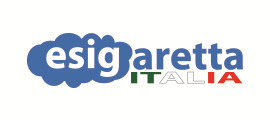


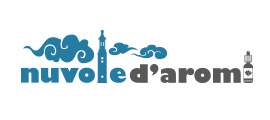








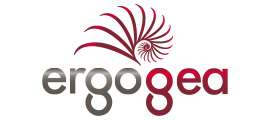
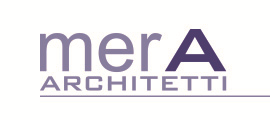
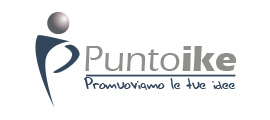

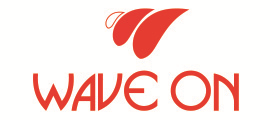


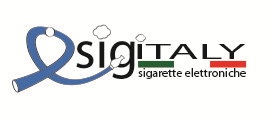

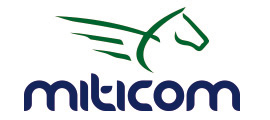




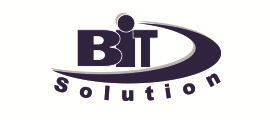
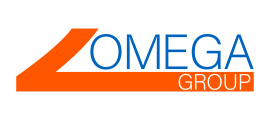

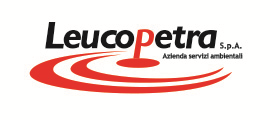

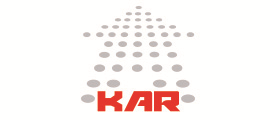

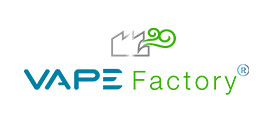


























Comments